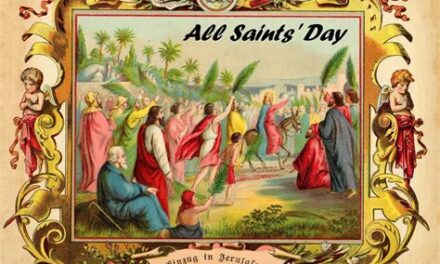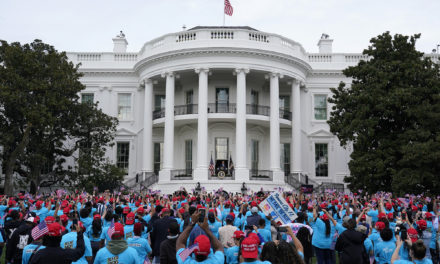Just last week a group of so-called students, egged on by teachers ardent to relive their own riotous youth, shouted down Charles Murray at Middlebury College, unwilling the listen or debate with the distinguished 74-year old political scientist. In doing so, these students denied the most fundament tenant of what we call “the West.”
The Lives of Others, Academy Awards winner for Best Foreign Film of 2006, remains to this day worthy of its honors. I’d go so far as to guess that there hasn’t been a better foreign film since, but I admit I’m hardly qualified to say. Directed by Florian Henckel von Donnersmarck, the plot is suspenseful, the characters achingly human, and the setting grimly real (although perhaps not grim enough).
And it has one very funny joke told by a young lieutenant in the Stasi, East Germany’s version of the KGB. It goes like this. Erich Honecker, General Secretary of the Communist party, greets the sun in the morning. “Good morning, dear sun.” The sun answers, “Good morning, dear Erich.” At noon, Honecker says, “Good day, dear son,” and is answered in kind. In early evening, Honecker says, Good evening, dear son.” No reply. He repeats the greeting, and the sun says, “Screw you, Honecker. I’m in the West.” I’ve seen The Lives of Others on at least three occasions, and at the particular moment I laugh every time.
It is, however, a joke at which one smiles nowadays with an incongruous sense of sadness. The majority of the people who lived on the wrong side of the Iron Curtain—the eastern side, mind you—for decades knew what it meant to live without things the West had in abundance, meaning material goods, including food, which were in short supply all too often. But it was the other “goods” of the West that the dissidents who struggled for a better life under communist rule desperately wanted.
A list of such goods is not hard to compile, with freedom—a fairly comprehensive state—at the top. But is freedom the only thing the West is about? I know I would have to expand the list, though it would still be rather short, to include a few items that add color to the somewhat vague idea of freedom that, to be sure, so many of us jealously defend. What would I add?
Without doubt, the life of reason is one of the hallmarks of the West—and everything that goes with it: an understanding of man’s soul, the importance of observing the outside world, and respect for other reasonable beings with whom one might share ideas, and an equal respect for less reasonable persons who might prove in time open to persuasion.
To that I ought to add—and it is not something one takes for granted—that a life of reason cannot exist without a sense of humility. When a man asserts a truth, he usually does so after years of careful study and thought, along with reading and listening to others greater than himself. There’s little doubt that in the West he speaks as a free man, but he also emerges from a community and a tradition. What man can take stock of what he claims to know without a humble recognition of those to whom he owes more than he can repay?
The freedom of thought and the deep-seated respect for others foundational to the life of reason, imply the political institutions that have developed in the West. And just as the life of reason recognizes its debt to others, so free men blessed with democratic and republican institutions ought to appreciate the cost of those institutions. Men to whom reason and humility meant little—and the West has known more than a few—often resisted with all the fiber they could muster attempts to establish an order that diminished their power. But the documents—Magna Carta (1215), the English Bill of Rights (1689), the Declaration of Independence (1776), and the Constitution (1789)—that slowly guaranteed men a life of free association came into being in spite of the obstacles power threw in their way.
Societies in which reason operates and where men associate freely (as opposed to chaotically), depend on a fundamental conviction that the universe is first and last an ordered and just place.
The West embraced Christianity because it affirmed that understanding as no other religion did or could. This was not possible for the religions of the East with their various doctrines of reincarnation, their sometimes monstrous gods, and their heavens that literally mean an eternity of non-being; or the pre-Christian religions of the Mediterranean, which too often had one law for the gods and one for men, the latter often based on a harsh acknowledgement of man’s mortality; and not Islam, which far from nurturing freedom and reason, ultimately demands plain submission.
I’ve mentioned it last, but Christianity is not the third of three that defines the West. It is the basis on which our civilization rests, the fountain of the order, freedom, and humility that has made men all over the world who have never enjoyed such a life seek it—even though in many instances they have not known exactly what they were pursuing.
Everything I’ve said may seem obvious, and I’m sure I needn’t add that in a piece this short it’s impossible to do justice to the matter of the West. That said, let’s admit the joke in The Lives of Others, “Screw you, Honecker, I’m in the West,” was funny in its broader context only because the West meant so much more than the freedom to thumb one’s nose a power-drunk commissar.
If the state, populated by thugs disguised in coats and ties or in military full-dress, tell a people, generation after generation, that the sun rises in the west and sets in the east, it should be no wonder after a few years that the party line has become the “new” physics, acknowledge by all, self-evident.
A free, reasonable, and Christian man can laugh at such claims. And for those who object that the Church placed Galileo under house arrest, my answer is: Yes, it did; but it was not long before Christians had learned to laugh at the old helio-centric model and embrace Copernicus, who placed the sun at the center of the universe. The growth of freedom and the openness of Christians to change in matters not essential to the maintenance of the faith made that possible.
In totalitarian societies, there are no non-essential doctrines. Those who baulk at that proposition end up in concentration camps, the Gulag, or as victims of the Red Guard.
“Screw you, Honecker, I’m in the West”? While Erich Honecker, General Secretary of the Communist party, administers the Stasi, who job it is repress any ideas or expressions that contradict the State — just as the students of Middlebury College did to Charles Murray.
The West depends on some minimal sense of its own identity, located in its veneration for reason, the free institutions essential to civil and consensual discourse, and the religion that, like no other, has nourished it. Benjamin Franklin famously responded to the question “Do we have a republic?” with the answer, “Yes, if you can keep it.” We still have the West. Can we keep it?















Great article! I’d like to add that the left is often without a defining philosophy that justifies any defense for freedom of speech or a ‘life of reason.’ Reading the article from the Atlantic that you referenced brought this to mind.
Beinhart, while by his own admission adhering to many left-leaning positions, demands freedom of speech from students on the nation’s campuses. However, he seems not to realize that the governing philosophy of these students doesn’t even recognize freedom of speech as he conceives it.
Freedom of speech to many of the philosophasters of our time (and thus their angry acolytes), is just one more deceptive structure of power. Behind the students’ protest that “This is not an issue of freedom of speech,” lies the principle that the ostensibly universal application of freedom of speech can only applies to the group in power. Pure freedom of speech is logically impossible: If you want to freely speak, you must control the context of speech. Thus the now-common cries against “granting X a platform” or “legitimizing X” (where X is some opposing ideological entity).
This topic is important and needs to be developed at much greater length. But for the sake of concluding this comment: Beinhart believes “…something has gone badly wrong on the campus left.” He’s correct, but only because the campus left is more ideologically consistent than he is.